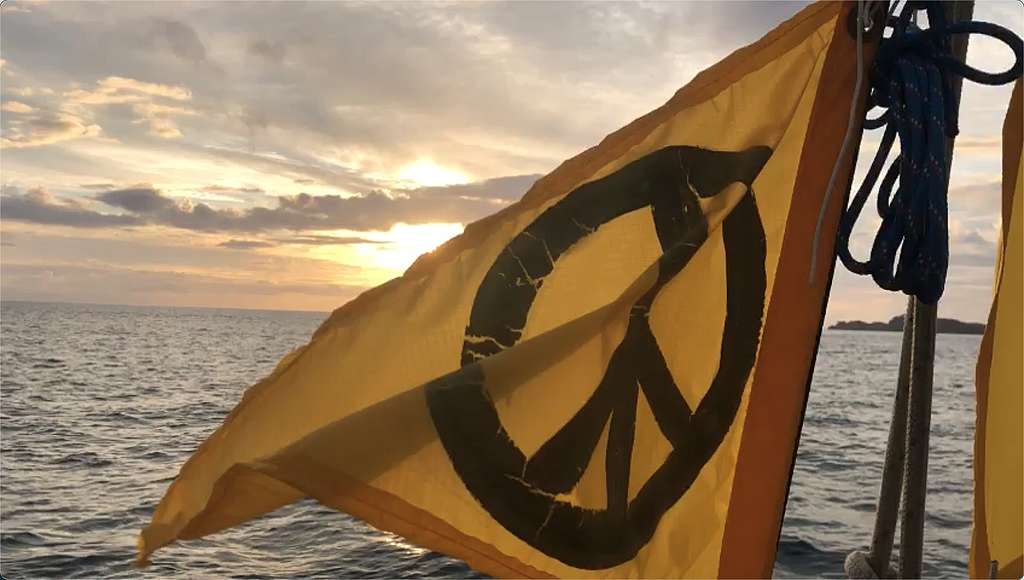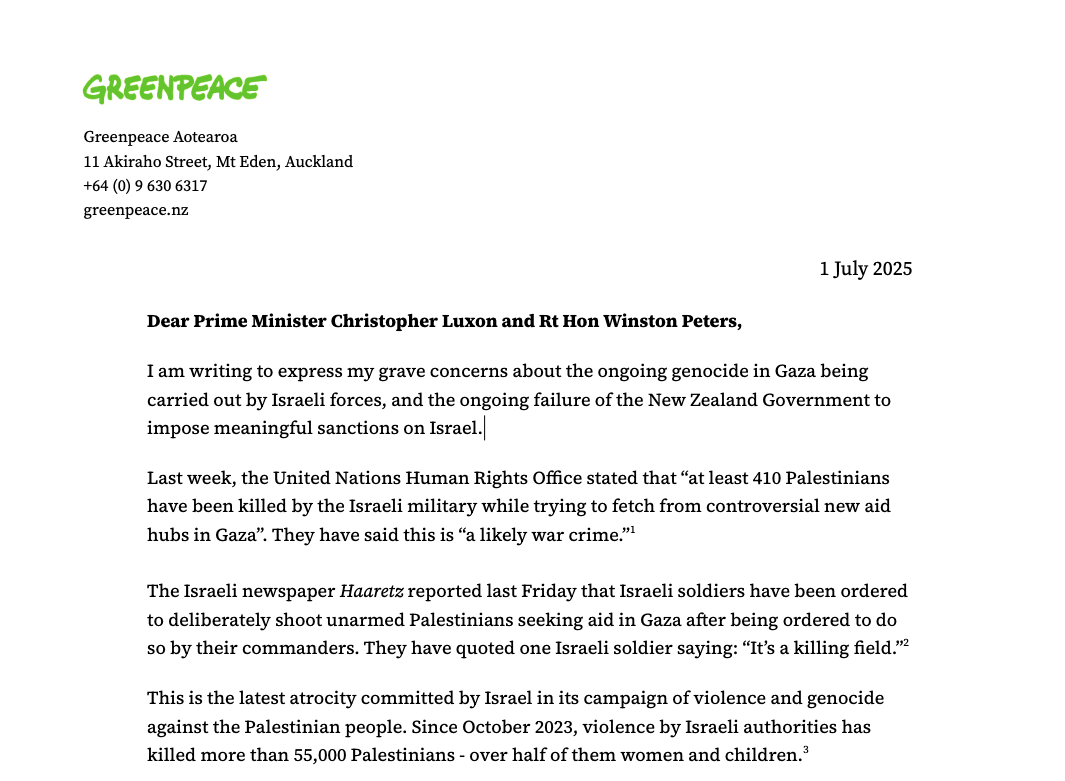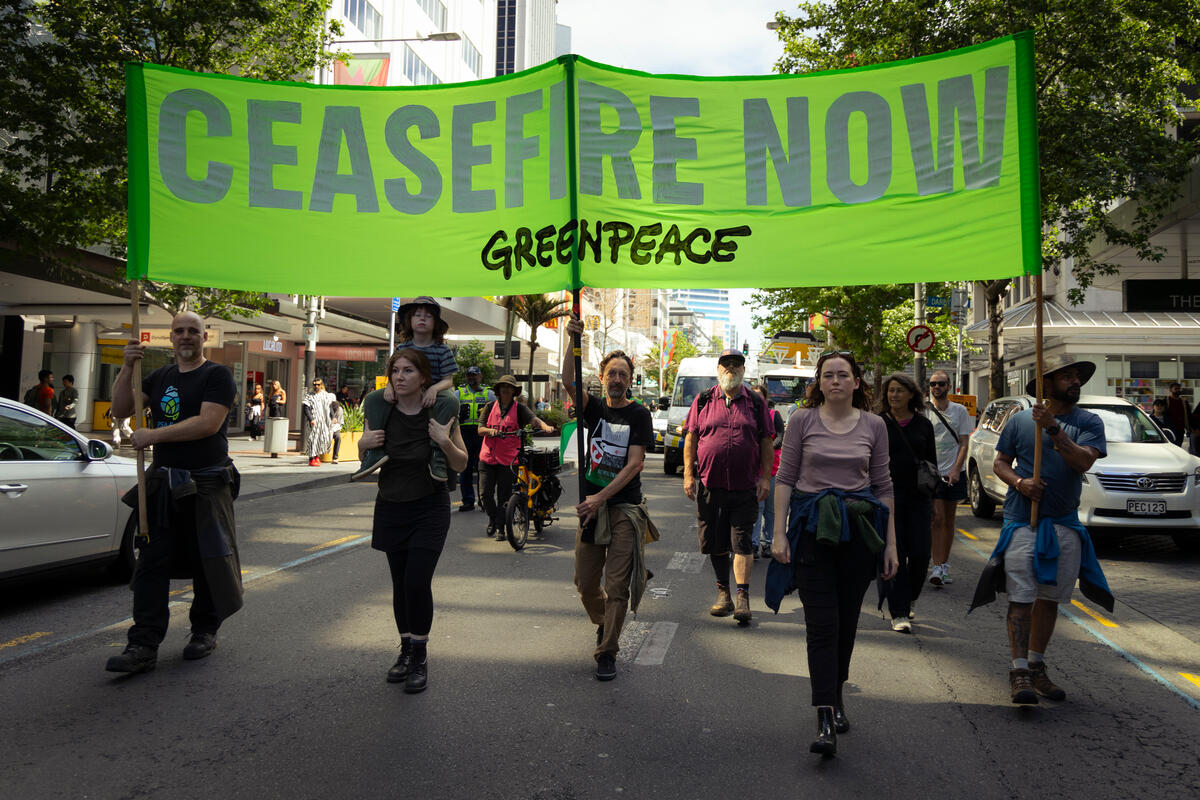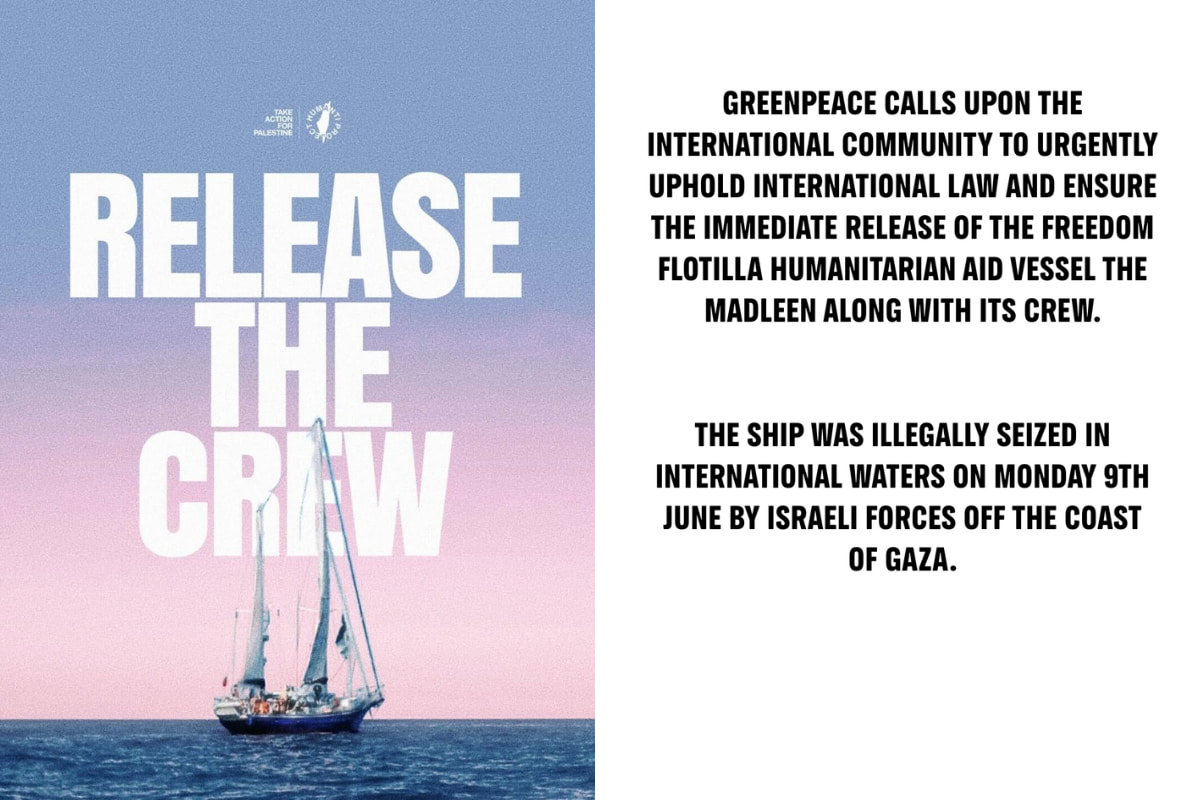To the Foreign Affairs, Defence and Trade Committee
This is a submission by Greenpeace Aotearoa providing further evidence as requested by the committee in support of our petition (presented to the House of Representatives on 14 April 2022) calling on the Government to freeze Russian oligarch assets in New Zealand.
Greenpeace is a global, independent campaigning organisation that acts to protect and conserve the environment and promote peace. Greenpeace has been operating since 1971, and now works in more than 55 countries. Greenpeace began as an organisation campaigning for peace, by ‘bearing witness’ against US nuclear testing off Amchitka Island, Alaska in 1971. While officially founded in 1974, Greenpeace Aotearoa first took part in protest action against nuclear weapons when Vega, renamed Greenpeace III, sailed from Northland to protest French atmospheric nuclear testing at Moruroa Atoll in the Pacific in 1972 and again in 1973. Greenpeace Aotearoa has grown to represent 35,000 financial donors and many more tens of thousands of supporters. We have opposed military aggression across the world and the building of arsenals by superpowers.
Since Russia invaded Ukraine in February this year, it is once again crucial for people, Greenpeace, and governments to stand for peace against a significant nuclear threat.
As the true horror of Vladimir Putin’s invasion of Ukraine is coming to light, the case for strong sanctions against Russian interests in Aotearoa grows painfully clear. Across the globe, Governments are sanctioning oligarchs as a way to pressure Putin to end the war.
While Greenpeace Aotearoa welcomes the introduction of the Russia Sanctions Bill, and the first tranches of sanctions that the New Zealand Government has introduced, we do not believe they go far enough. We call on the government to immediately freeze the New Zealand assets of every Russian oligarch.
If the New Zealand Government is serious about applying pressure to help stop President Putin’s war on Ukraine, we need to see more than token sanctions and verbal condemnations. Every day this Government delays sanctioning the oligarchs close to Putin’s regime with ties to New Zealand, you are not fully playing your part in global efforts to end the war in Ukraine. People are fleeing their homes and dying, and the threat of nuclear disaster looms. New Zealand has long been a strong voice for peace and your government needs to take stronger action on Ukraine immediately.
Sanctioning Oligarchs
Russian peace activists have indicated that sanctioning oligarchs is an effective way to pressure President Putin that does not add further misery to everyday Russian people, many of whom oppose the war on Ukraine, and face very significant consequences for speaking out.
Russia has the 5th highest number of billionaires of any country in the world. Russian oligarchs are not just wealthy people, but billionaires. To become a billionaire in Russia, one must have ties to Putin’s regime. Oligarchs, by very definition, hold significant political influence through their wealth.
It is therefore not about weeding out the ‘bad’ oligarchs from the ‘good’ oligarchs and deciding which ones to sanction, but acknowledging that this small pool of ultra-wealthy, elite people, as a group, hold significant sway with President Putin’s regime and the political system in Russia. This means that global pressure on this group can impact Russian politics, and influence Putin’s decisions regarding the war in Ukraine.
Over 15,000 people have signed our petition – within a very short space of time – calling for stronger action by the New Zealand Government to pressure Putin to end the horrific invasion of Ukraine, by freezing the assets of every Russian oligarch in Aotearoa.
If the Russia Sanction Act is to have any credibility, the list of those sanctioned must include Alexander Abramov.
The case for sanctioning Abramov
The justification for sanctioning New Zealand’s wealthiest Russian investor, Alexander Abramov is clear.
Abramov is in the top 20 wealthiest Russian oligarchs list. He is co-founder and chairman of UK-based steel producer Evraz, with an estimated net worth of $5.9 billion. He also owns a luxury retreat in Helena Bay to which the ‘Ukraine Peace Flotilla‘ sailed in March, calling on the Government to freeze the assets of oligarchs like Abramov.
Abramov is the chairman and 29% shareholder in steel company, EVRAZ, which has been accused of providing steel to build Russian tanks. In early May the UK placed sanctions on EVRAZ, stating that the company“operates in sectors of strategic significance to the government of Russia” and the action would “further chip away at Putin’s financial reserves and siege economy, and support Ukraine’s continued resistance”.
Abramov also has close ties with fellow oligarch Roman Abramovich, the recent owner of Chelsea Football Club whose assets have been frozen by the UK over “clear links to Putin“. The two oligarchs are investment partners in businesses across the world, including substantial ownership of EVRAZ.
Vladimir Putin’s biographer, Chris Hutchins, described the relationship between the Russian president and Abramov’s business partner Abramovich, as ‘like that between a father and a favourite son.’
The UK Government has also placed sanctions on the lesser oligarch Eugene Shvidler’s UK assets because of his business links to Roman Abramovich and EVRAZ.
Abramov’s assets were recently sanctioned by the Australian Government.
Further evidence of Abramov’s close ties with Putin include:
- Vladimir Putin awarded the steel magnate Abramov the Order of Friendship in 2015.
- Evidence was given in the High Court in London that Abramovich bought Putin a $50M superyacht.
- Alexander Abramov has been described by the Russian press as a ‘high flying lobbyist” within the Russian Government.
- When Abramov’s steel interests were in jeopardy, President Putin paid a personal visit to one of his steel mills in Siberia.
- Abramov was quoted in the Russian media as saying that “Global Competitive advantages are created not by managers but by politicians”
- Abramov is on the so-called ‘Putin List’, which contains the names of more than 100 oligarchs drawn up by the US Treasury
Alexander Abramov truly is the ‘big fish’ here in Aotearoa, and freezing his assets here would be a key step in pressuring Putin and executing the aims outlined by the Minister for Foreign affairs and the Prime Minister in passing the Russia Sanctions Act.
Refusing to freeze Abramov’s assets risks being read as New Zealand being a safe harbour for oligarchs close to Putin, and renounces the actions of like-minded governments in actively sanctioning oligarchs. It ignores the calls of peace activists in Russia, who are telling us that sanctioning oligarchs like Abramov is one of the most effective ways in which to pressure the Putin regime. It effectively takes the side of an oligarch with undeniable links to, and power to play a role in influencing, the violent and oppressive Putin regime that has wrought devastation onto the people of Ukraine.
We urge the Government to impose sanctions on, and immediately freeze the New Zealand assets of every Russian billionaire oligarch until Russia withdraws its military invasion of Ukraine.
The Government and the New Zealand Parliament must act now.
ENDS

In the name of peace, call on the New Zealand Government to freeze the assets of Russian billionaire oligarchs to pressure Vladimir Putin to call off the Russian Military invasion of Ukraine.
Take Action


